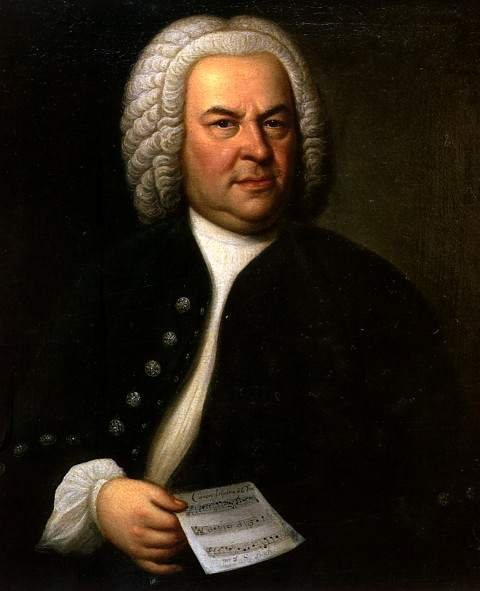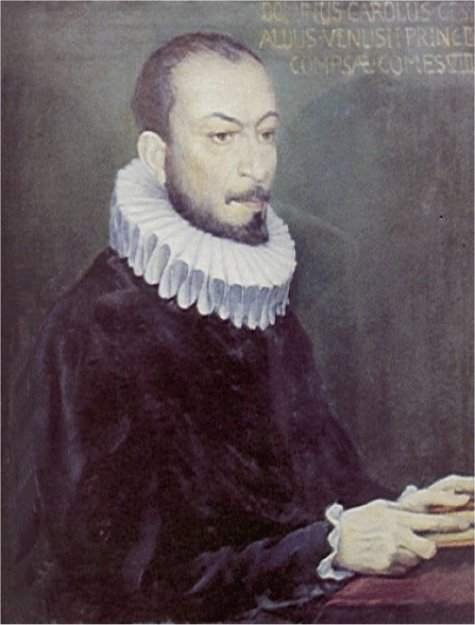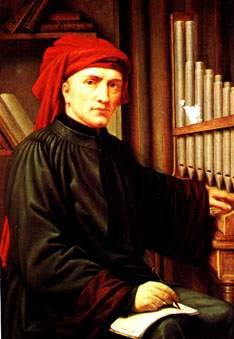I’ve already written a little about my first flirtations with liturgy: how I began listening to Mozart’s Requiem as “mood music,” at a time when I was feeling morbidly depressed. I listened to it repeatedly, reflecting on failure and death and loss; recalling the sad end of Mozart’s life, and the idea that he was writing music for his own funeral — it seemed the most pained, desperate thing I could manifest. I had little concept of liturgy or what that even meant, only the sense that these words in Latin were somehow sacred and powerful. I downloaded their text; I memorized it. This fascination was one of the motives that brought me to study Latin.

My next contact with liturgy was Johann Sebastian Bach’s Mass in B Minor, BWV 232, a recording of it that came highly recommended. Honestly, at the time, I’m not sure I could have even told you what a “Mass” was, other than “something Catholics did.” At the time, it was just beautiful music to me; or so I thought.
But then, some four or five years later, something remarkable happened. It was after I had graduated with my bachelor’s. I was teaching at a small, Christian school. Preparing for class was one of the most stressful things I’d ever done. Peace was more a premium than it ever had been before. I had discovered Last.fm; I was listening, I think, to the J.S. Bach radio. And then, like a breath of fresh air, I heard this:
(The English translation on the first slide should read, “Hail, O sweetest Mary”)

Voices so worshipful, so longing, so mournful, so penitent — the music pierced right to my soul. The composer was Carlo Gesualdo, Italian nobleman, musician, composer — and murderer. As a young man, he had murdered his wife and her lover. Later in life, wracked with depression and guilt and fearful for the fate of his eternal soul, he wrote some of his most expressive music in penance. The story of the man, and especially his music, immediately captured my heart.
And listening to Gesualdo on Last.fm led, soon, to Dufay, and Josquin, and Tallis, and Byrd, and others — my collection of early, sacred music quickly mushroomed in a matter of a few weeks. As did my obsession with it. Very soon, it was all I was listening to. It had burrowed into my soul — these sounds of so long ago, carrying such order and peace; this worship — for I understood immediately that it was worship, and worshiped God with it — so clean and bright and pure and heavenly. What affected me more than anything was the Mass settings. I felt the sense, very early, that the Mass was spiritual food.

Prompted by the feelings of worship that the music stirred in me, I soon was devoting time every morning to daily Bible study, something I hadn’t done consistently for a very long time. I made my way through the whole New Testament in a matter of a month or two; there had been books, up until that time in my life, that I’d never read before. I played the music while I worshiped and prayed. I told myself that it “made me feel like a monk” — prayerful and contemplative and ascetic — this was a good thing. I felt I was drawing on some ancient, powerful store of spiritual power.
And I was. That store was liturgy. I was hearing the Mass every day. The music of the Mass was piercing my heart and drawing me to worship. The words of the Mass were pouring into my soul — even before I understood them or knew what was happening; though by this time my Latin was good enough that I understood them quickly. On a number of occasions I found the Roman Missal online, in Latin, and followed along. I began to practice the prayers of the Mass in my private spirituality. I had little inkling at this time that I was on the road to Catholicism; I had no intention, starting out, of ever attending an actual Mass. But the Holy Spirit was drawing me to the Church through the Mass, through liturgy.
I just happened to be browsing through your “affinities” as you mentioned, and saw this post. What a coincidence, I was also listening to Bach’s mass in B-minor, which I picked up from the library yesterday! I’ll have to see if I can find des Prez too.
Cool. 🙂 There is so much wonderful liturgical music out there, from so many different periods. I’m a member of Spotify, which is really an amazing service — there’s all kinds of music on there I wouldn’t have access to otherwise (being a poor grad student). It’s free if you can put up with the ads (I finally reached the point I couldn’t). There are a lot of recordings of Josquin on there, as he’s usually known (which saves me the trouble of worrying over whether to capitalize, and how to spell, des Prez/Desprez/Des Près, etc.).
I actually gave up on one of my online sources of music not too long ago because of ads. Luckily my local library has a surprisingly large collection of holy music. Thanks for the suggestion though!
Spotify’s ads were not that obnoxious initially — but they got to me. You might give it a try to see what you think. It’s $10 a month to get rid of the ads, which is well worth it to me for all I listen to it. That’s $10 I don’t have to spend buying a CD, and yet I can listen to hundreds or thousands of complete CDs.
Sacred Renaissance music is absolutely breathtaking. I had the opportunity to sing the Monteverdi Vespers with a choir at my university last year, and it was incredible. I also really love Palestrina’s Pope Marcellus Mass. Now I’m starting to see what led you on the road to Catholicism! Music is very powerful stuff. Thank you for sharing this beautiful story.
That is wonderful. 🙂 I often wish I could sing — but it’s probably better for the world that I don’t. Thank you for the kind comments.